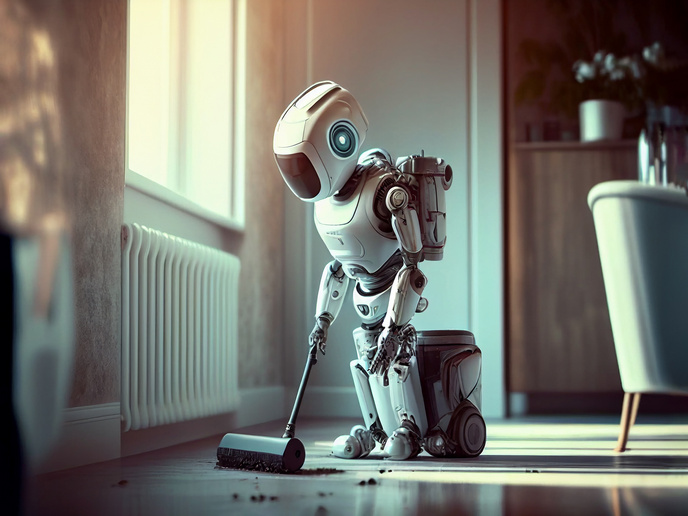As part of a major effort to redefine household chores, Meta has started a groundbreaking program called PARTNR (Partnership for Advancing Robotics and Task Naturalisation Research).
This program explores the intricacies of human-robot interaction (HRI), specifically routine housework tasks. The objective is to imagine and engineer a future in which humans and robots work together harmoniously in the home.
Read also: Meta’s Threads exceeds 320 million users, unveils media tab and photo tagging features
The genesis of Meta’s PARTNR initiative
Meta’s PARTNR initiative was publicly announced on February 7, 2025. This research program aims to bridge the gap between humans and robots in domestic settings. It focuses on creating a benchmark and a dataset to understand how humans and robots might work together more effectively. The initiative targets mundane yet essential tasks such as cleaning, cooking, and managing food deliveries, aiming to establish a symbiotic relationship in which humans and robots complement each other’s capabilities.
Scope of research by Meta on Humans and Robots
The research under PARTNR involves a vast benchmark of 100,000 tasks, covering everything from dishwashing to organising toys. The dataset includes human demonstrations of these tasks in simulation, which is crucial for training embodied AI models. Meta’s approach allows for rapid testing and development, which has practical applications, as seen with Boston Dynamics’ Spot robot, where Meta’s models have been tested outside simulation environments. This demonstrates a real-world application of how humans and robots can collaborate on everyday tasks.
Meta’s vision for Human-Robot collaboration in housework
Meta’s exploration of human-robot collaboration isn’t just theoretical. They’re integrating mixed-reality interfaces that visually represent a robot’s decision-making processes. This transparency builds trust and understanding between humans and robots, making the interaction more intuitive. The potential for robots to become true partners in household management, rather than just tools, is at the core of this research, which focuses on how robots can adapt, learn, and even anticipate human needs in a home setting.
Technological and Social Implications of Meta’s Research
Meta’s study has far-reaching implications for both technology and society. Regarding technological advancements, the goal is to develop robots that are not just autonomous but collaborative, capable of integrating into human behaviour patterns. Socially, this could rebalance domestic responsibilities, potentially contributing to gender equality by freeing up time for leisure or paid work. Economically, while automation might reduce time spent on unpaid labour, it could also disrupt traditional job markets, although new opportunities in robot-related services might emerge.
Read also: Meta entices TikTok creators with cash bonuses, content deals
Challenges and considerations for Meta’s Human-Robot housework vision
Despite the optimism, several challenges must be addressed. The cost and accessibility of advanced home robots could limit their adoption to wealthier demographics, creating a digital divide. Privacy and security are significant concerns, as home robots will handle and potentially store sensitive personal data. Additionally, there’s the cultural aspect of social acceptance – how comfortable will people be with robots sharing their living spaces? The psychological impact of living with robots also needs exploration, ensuring that such technology doesn’t disrupt social norms or equality.
Future prospects for Meta’s Human-Robot collaboration
Meta’s initiative is part of a broader trend where tech companies are pushing for AI in the workplace and in our homes. The vision of PARTNR is to make robots efficient workers and partners in our daily lives. As we move towards this future, the success of such collaboration will depend on how healthy technology can be integrated into human life without disrupting privacy, security, or social dynamics. The journey from robotic vacuums to comprehensive household helpers is just beginning, and Meta’s PARTNR is setting the stage for a revolutionary shift in how we think about and perform housework.
















